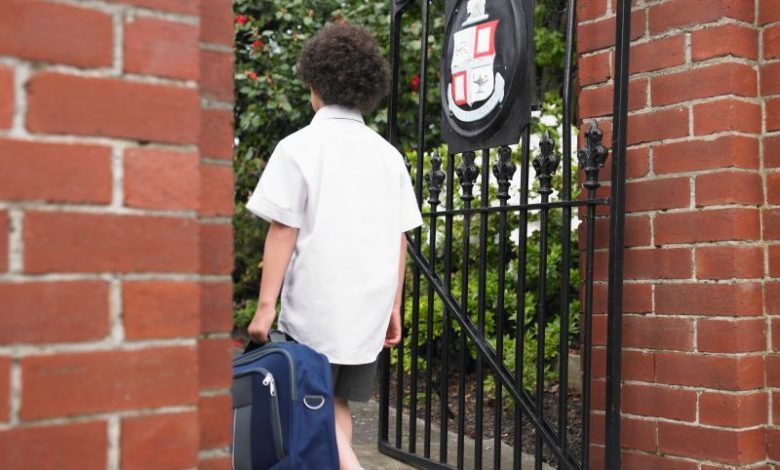Charter schools 2.0
One of ACT’s key election policies was the reinstatement of charter schools – what's changing this time around?

The beginning of the 2024 school year is seeing some big changes in education, including the new government’s reintroduction of partnership schools, also known as charter schools.
Now, party leader David Seymour says their reintroduction will be bigger and faster than before.
In the election season last year, Seymour introduced the party policy of reinstating partnership schools. It was since written into the coalition agreement after the 2023 election.
Read the Term 4 edition of School News HERE
Seymour says that their reintroduction will be faster because legislation and administration on the policy had been done before. He believes that former partnership schools would want to revert among the other categories of new partnership schools and state schools wishing to convert.

Previously, only 1500 students had been enrolled at 11 partnership schools, and Seymour anticipated an expansion in those numbers.
“You could imagine a scenario in which a state school larger than that could convert overnight,” Seymour told the Herald.
“I envisage the funding formula will be designed to encourage growth rather than what we had before, so the way to become viable economically will be to grow and attract students.”
Although the process for deciding which schools will be run under partnership has yet to be designed, he believed it would be a decision for the board of trustees after consultation with the school community.
Seymour added that all schools had to serve their community.

Changes to the partnership model will include a funding formula. Previously, there was an establishment grant and then operational funding based on a guaranteed minimum roll, meaning a school could be paid for a certain number of students even if it had less. Seymour said that created an incentive to minimise rolls. Now, Seymour says the funding model will be designed so funding follows the student. Seymour also said there would be changes to the assessments of partnership schools.
But the model has prominent critics in the education community. Seymour describes partnership schools as an “existential threat” to teacher unions because they allowed individual employment agreements between schools and teachers.
But PPTA President Chris Abercrombie questioned whether partnership schools were needed at all. He noted that there was already a variety of schools available in the New Zealand education system, including state-integrated, special character, religious, alternative, private, single-sex and so on.
“What problem are they trying to solve? That has never been really articulated to us…. There’s so many choices in our education system at the moment.”
Abercrombie pointed out that special character schools had many of the same freedoms as partnership schools, with the exception of being able to hire unregistered teachers and ignoring the New Zealand Curriculum.
Abercrombie noted there was much uncertainty about the reinstatement of partnership schools, and there were unanswered questions about the process of converting a state school. Instead, he believes a focus should be put on public education.
“Building up our public school system, funding it properly, having qualified registered teachers in front of every young person and having subject specialists, that should be our focus, not getting public money to private individuals to run schools as they see fit.”
Charter schools were first introduced to New Zealand in 2012, spearheaded by David Seymour who was then the undersecretary of Education. They allowed schools to set their own curriculum, hours, qualifications, pay-rates for teachers and terms. They were abolished in 2017 under the Labour government, though all became “special character” state schools and are still in operation.










Does anyone (David Seymour included) know what the purpose of charter schools is?
Re the NZ Curriculum.
The NZ curriculum can already be adapted by schools to meet each school community’s needs. Presumably, a school might want to become a charter school to teach something completely different. What might that be?
Either the NZ Curriculum is a document that outlines what is important for NZ students to learn – or it isn’t. If it is, why would we allow some students to miss out?
Teacher Registration:
If teacher registration is important to make sure students have the right people in front of them, every student in every school is entitled to that. If it isn’t important, why have it at all?
There seems to be no cogent argument for having separate rules for either of those key tenets of charter schools.